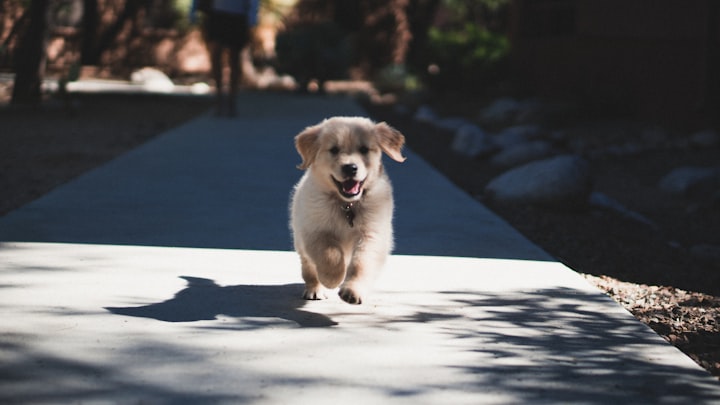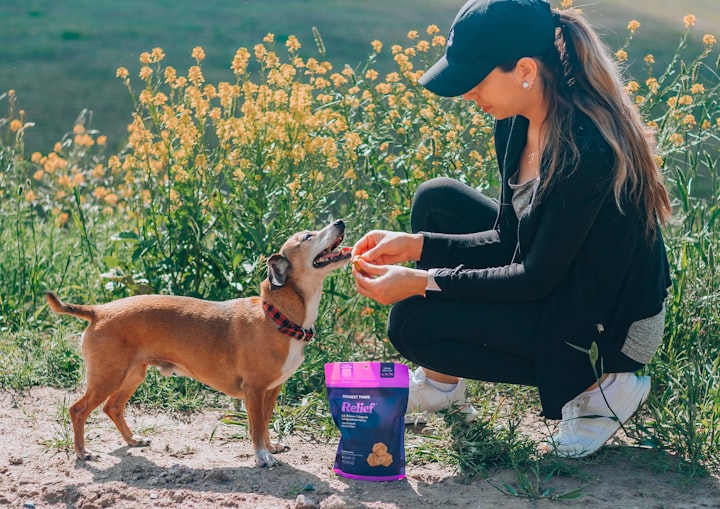10 Effective Training Tips For Your New Puppy
When you bring your new canine home, it's shrewd to start preparing right away. However, where would it be advisable for you to begin?

What's the most ideal approach to prepare a doggy? Also, how would you prepare a grown-up canine?
There are various alternatives for preparing your new pet. Regardless of whether you select to prepare your doggy or canine yourself, take classes or recruit a private coach, you can execute the accompanying fundamental preparing tips immediately to make the cycle simpler.
Top 10 Effective Training Tips For New Puppy
Tip 1: Choose Your Dog's Name Wisely
Part of the fun of getting back another little dog or canine is tracking down the ideal name for them. In any case, did you realize certain names are better for preparing? It assists with considering a short name finishing with a solid consonant that they can generally hear obviously. A solid completion, as in the names "Jasper," "Jack" and "Ginger," livens up pup ears — particularly when you place accentuation toward the end.
On the off chance that your new pet is a more established canine, they're presumably used to their name now. Nonetheless, transforming it isn't not feasible. What's more, if your new buddy is emerging from a harmful circumstance, another name might even address a new beginning. Canines are incredibly versatile. On the off chance that you choose to give them another name, use it reliably, and soon enough your little guy will react to it.

Whatever their name, make certain to connect it with fun, charming encounters however much as could reasonably be expected, instead of negative ones. Preferably, your puppy should think about their name similarly they consider other fun stuff like strolls or dinnertime.
Tip 2: Decide on the House Rules
Before your new hairy buddy returns home, choose what they may or may not be able to. It is safe to say that they are permitted on the bed or the furnishings? Are portions of the house untouchable? Will they have their own seat at your eating table? On the off chance that the not really set in stone early, you can keep away from disarray — for both of you.
Tip 3: Set Up a Private Den
Like people, canines need their own space. As ahead of schedule as could be expected, give your little guy their own private resting place, like a box. Your canine will profit with brief periods left alone in the solace and wellbeing of their lair; it can likewise be a significant instrument for housetraining. Make certain to compensate your little dog or canine in the event that they stay loose and calm in their sanctum.
Tip 4: Help Your Puppy Relax
At the point when your puppy returns home, give them a warm high temp water container and put a ticking clock close to their dozing region. This mimics the warmth and heartbeat of littermates and will relieve your little puppy in its new climate.

This tip possibly is more significant for another canine that recently lived in an occupied, uproarious sanctuary, especially in the event that they've made some harsh memories right off the bat throughout everyday life. Whatever you can do to assist your new pet with settling in their permanent spot to live will be useful for both of you proprietor playing with the canine
Tip 5: Reward Good Behavior
Prize your doggy or canine's acceptable conduct with uplifting feedback. Use toys, love, and loads of applause — and remember the treats, for example, DENTASTIX treats. Tell them when they're taking care of business. Thusly, never reward awful conduct, as it'll just confound them.
Tip 6: Teach Your Pup to Come When Called
Come, Jasper! Great kid!
The main order you show your pet ought to be to come. Get down on their level and advise your puppy to come utilizing their name. At the point when they do, get energized and use bunches of uplifting feedback. In the future, attempt the "come" order when they're diverted with food or a toy. As your pup gets more established, you'll keep on seeing the advantages of consummating this order.
Tip 7: Train on "Canine Time"
Pups and canines live at the time — two minutes after they've accomplished something, they've effectively disregarded it. So when your puppy is accomplishing something awful, utilize your picked preparing strategy immediately so they get an opportunity to make the relationship between the conduct and the rectification. Predictable reiteration will build up what they've realized.
Tip 8: Discourage Jumping Right Away
Little dogs love to bounce up in hello, and some grown-up canines have learned negative propensities. At the point when your little dog or canine leaps on an individual, don't criticize them; simply betray them, disregard the conduct and delay until they settle down prior to giving uplifting feedback. Never energize bouncing conduct by tapping or lauding your canine when they're in a "hopping up" position.

Tip 9: Say No to Biting and Nipping
Rather than chiding your new pet, an incredible method to debilitate your bombastic canine is to imagine you're in a ton of torment when they nibble or nip you — a sharp, uproarious holler should work. Most canines are astonished to the point that they stop right away.
In the event that verbal signs don't work, have a go at exchanging a bite toy for your hand or trouser leg. This trade stunt can likewise work when a doggy finds the delights of biting on your number one shoes. They will in general favor a toy or bone at any rate. As a last resort, intrude on the gnawing conduct and react by disregarding them.
Tip 10: End Training Sessions on a Positive Note
Your pup or canine has endeavored to satisfy you all through their preparation. Leave them with bunches of applause, a treat, some petting, or five minutes of play. This nearly ensures they'll appear at their next class or instructional course with their tail swaying, prepared to work!
Reward tip: When your little dog is mature enough, ponder getting them fixed or fixed. The equivalent goes in the event that you embrace a canine. A fixed or fixed canine may be more accommodating, not so much forceful, but rather more open to effective preparing.
About the Creator
Annyonmous Writer
I am freelance content writer






Comments
There are no comments for this story
Be the first to respond and start the conversation.